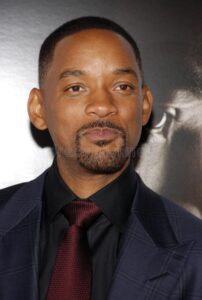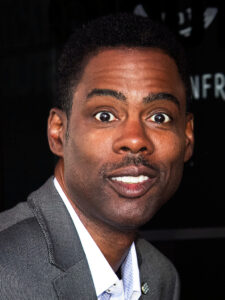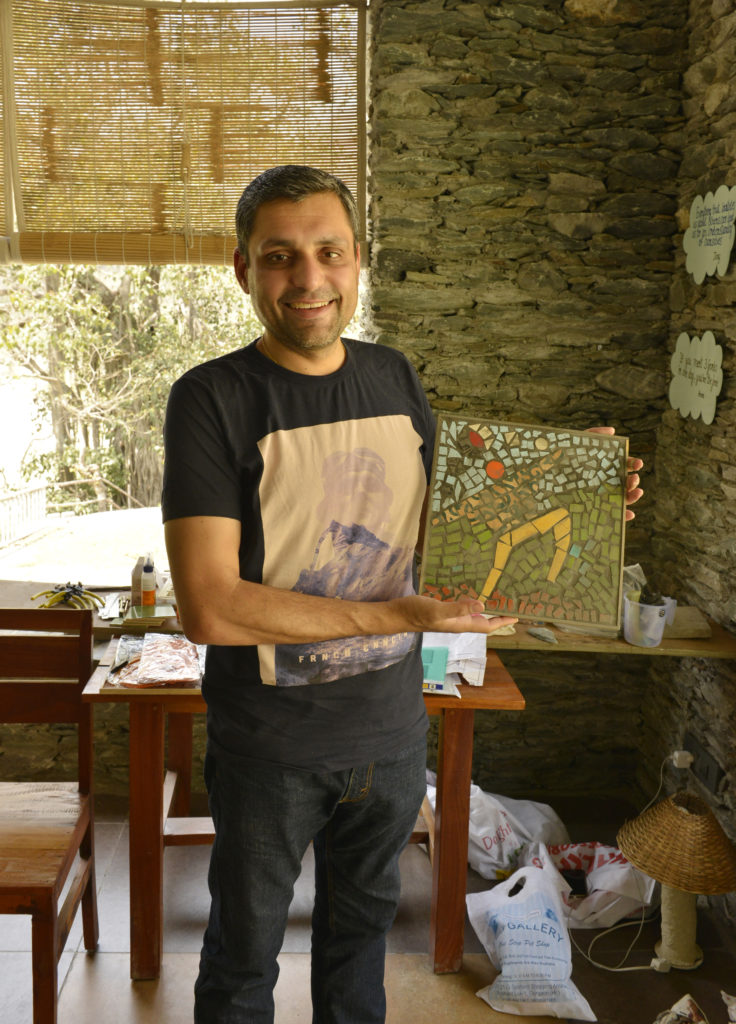Opinions
now browsing by category
3 Practices For Building Your Personal Resilience
The Next Edition Of The CXO Forum Is On 20th May ‘23
The Bullzi CXO Forum took shape when, at the peak of the pandemic, C-Suite leaders needed a safe space to talk about their own worries and challenges. Since then, we have helped leaders come together to explore, debate, and discover about the future of work and the workplace.
We are now hosting the fifth edition of the CXO Forum on May 20th. It’s focused on 2 key issues that are exercising the minds of leaders:
- The rapidly changing impact of AI on organizations and the workplace and,
- Economic headwinds and their implications.
Here’s what some of the past participants have to say about their experience with the CXO Forum –
Sashwati Banerjee, Social & Development Sector Leader
My very first time at a Bullzi CXO forum was at the first Reflections workshop. I really did not know what to expect, all I knew was what Sanjeev told me, “come with an open mind”. I was a bit at a crossroads and like many searching for my purpose. Meeting others in the same space, sharing, and learning was personally a great journey for me.
Since then, I attended a series of CXO forums organized by Bullzi, both online (during Covid) and offline. Every time, it’s been gratifying and productive. The most recent one was working with GenZ. As many of you will agree, it’s something we talk about, think about, and struggle with. The forum really helped me understand that for me as a GenX to work in a GenZ ecosystem, there are many things I need to unlearn and relearn. It helped me relate with others facing similar issues. But most of all it brought me in touch with two exceptionally talented and thoughtful GenZ’s! the Forum gave me a deep understanding of looking at things from a different perspective and point of view.
If you’re looking to reflect, introspect, challenge or just be – I would highly recommend one of Bullzi’s CXO forums. Over and beyond the actual substantive work that happens, it’s fun, and interactive and you will meet people who will become friends for life!
Nitin Mantri, Group CEO @ AvianWE
The Bullzi CXO forums have been doing a tremendous job. I have attended about four) of these forums (online & physical) over the last couple of years, and each one of them has enriched my knowledge and skills and helped in the betterment of my organisation. It’s amazing how Sanjeev always gets the right mix of people together, thus creating a conducive atmosphere for us to discuss our issues freely, be each other’s sounding board, learn in real time, and solve problems. You can always expect the experience to be introspective, immersive, and transformative.
From helping me understand the expectations of our Gen Z recruits to making me more flexible towards hybrid working to teaching me the importance of retaining organizational culture, these forums have been extremely productive for me as I grow my company.
I would like to take this opportunity to congratulate Sanjeev and his Bullzi team for running a fantastic program that has helped many CXOs evolve and become stronger and better. Wishing you all the best for the future as I look forward to your next event.
Jayanto Banerjee, COO @ Hakuhodo
“The Bullzi CXO forum has been for me a wonderful platform to have structured and unstructured conversations with like-minded people in leadership roles.
The first one I attended was online, centred around the challenges as we emerged from COVID. I found the conversations quite relevant to the problems faced by org leaders each day. The second one I attended was an in-person event, focused on understanding the new generation entering the workplace and the perceived difference in work ethics and workplace expectations. The way the sessions were organized was pretty unique. I found myself getting immersed, involved, and animated around the discussions, and it served as quite an eye opener both in terms of shared experiences as well as in terms of getting a fresh perspective. Well moderated, organized, and thought through by Sanjeev Roy and the Bullzi team.
I would recommend it not just for new CXOs, but also those who consider themselves old hands. You might find yourself pleasantly surprised!
The hallmark of the CXO Forum sessions is the interactive and experiential nature. For the upcoming edition as well, we will be joined by our Catalysts (industry experts) who can guide the participants to find answers for themselves. Know more about them at the link given below.
The Essential Information
This will be a 1-day experiential outing at Zorba The Buddha (off Mehrauli Gurgaon Road, near Ghitorni Station) on the 20th of May ‘23. We will start at 10 a.m. and you can leave anytime after 6:00 p.m.
The participation fee is Rs.20,000 including all charges and taxes. It includes lunch and high tea.
To participate, please confirm here.
Brands and The Slap
How ‘The Slap’ could affect the brand reputation of the various players
There is an adage in marketing that no publicity is bad. Even negative publicity helps to keep the brand salient. At least for those in the entertainment business. Many a marketing and PR guru will publicly disagree but privately nod at it. We know that bans and controversies sell more tickets, more books and get more eyeballs. So, you could argue that all this hullaballoo is really all good for Will Smith, Chris Rock, Jada Pinkett, The Academy Awards and Pfizer (yes, the pharma people, we will come to that in a bit).
In these modern times, the adage may need a little nuancing. We are in an era where it is no longer enough to keep your personal beliefs personal. What you stand for and believe in impacts your personal brand a lot more than it did before the days of social media and hyperconnectivity. Particularly if you are a celebrity. Think Meryl Streep and her calling out of Trump’s mocking of a disabled reporter. More recently Neil Young and his row with Spotify on vaccine misinformation caused an exodus from the platform and I suspect people started hearing his music again. The Slap though would have different outcomes for the different actors. The consequences will be felt long after the headlines have moved on.
The Slapper

Will Smith is possibly the biggest ‘Black’ movie star currently. His appeal though, is wider than that. He is seen as a modern family man, practicing an open marriage but also a role model parent for many. Will Smith has played the role of a sensitive person with aplomb. Simultaneously, he has been a man of action. It is the composite and an amalgamation of the opposites that lies at the core of Will’s brand identity. It is probably why he has a wide appeal.
This act of reacting violently in front of a global audience to a joke (albeit in poor taste) about his wife plays out very strongly to one side of him – the emotional, action oriented avenging hero, out to protect his wife. It had immediate appeal with a part of his audience. However, it does destroy the sense of balance of opposites that is so central to his brand. His subsequent apologies have done nothing to change that. It has also taken away from the remarkable achievement of winning the Oscar. Will Smith’s brand standing has eroded, and he will continue to wear The Slap as an albatross around his neck.
Over the longer term, The Slap could strengthen some deeply held negative beliefs about race.
The Slapped

Chris Rock is to Will Smith what Arshad Warsi is to Akshay Kumar. Will is the mega star and Chris a minor one. Chris is the intelligent, wisecracking, funny, fast speaking guy. ‘Black’ is very much a part of his core identity. He has a career as a stand up and draws large crowds for his acts. Getting away by insulting the audience is a core ingredient of a stand-up comedy act. The audience expects him to be outrageous at times.
In this case, getting slapped makes him a victim rather than an offender. His actions are not incongruous with Chris the brand. His apology is also par for the course for comedians. Chris will probably draw bigger audiences and can wear The Slap as a badge. His brand standing has possibly received a boost, bigger than what being an Oscar MC got him.
Over the longer term, political correctness will draw even more rigid lines around what is acceptable.
The Subject of The Slap
Jada Pinkett Smith is an actor, musician, producer, entrepreneur, wife and independent woman, all in one. She is admired for her multifaceted talent and for being so much more than just an actor or wife of a mega star. Jada is seen as a person with a voice and agency. She does not come across as a person who needs defending. Though some questions have been raised since the video of her reacting to the incident have been going around.
Jada has maintained her poise and her statements have been unreproachable. Jada could have but has not played victim. Her actions have been largely in consonance with her brand image. Her brand standing has probably gone up and she emerges as a winner.
Where The Slap was delivered
The Academy has been working to respond to criticism of their values for a few years now. They have often been accused of being racist, big money less art, and big banner centric. The Academy has also reflected, through the cinema that wins, the mood of the US (sometimes the world). The award ceremonies have always defined standards in presentation and content. It is a global institution and a market driver.
This year’s Oscars were supposed to reflect how the Academy is more aligned to a world that respects and recognizes diversity and inclusion. Never has there been such a combination of winners – an LGBT actress, woman director, actor with disability, black actor. This was going to help strengthen the brand. That message has got lost. Instead, even though eyeballs have gone up what is remembered is The Slap and the awkward handling of it. The lack of a firm, value based response, has stripped some more gloss off the Academy. They have weathered worse before and may well escape without too much damage. However, the ride to change has slowed down.
The Gob Smacked
They happened to sponsor the awards. They also happen to be a pharma giant. Pfizer were the right company at the right time the last 2 years, with their high quality Covid vaccine. They have been much sought after by the world and the stock market.
Conspiracy theories, which always surface with events like The Slap, are spinning around the world at warp speed about how this is a gimmick by Pfizer. Apparently to launch their alopecia drug! If this were marketing, it would be the strategy of some who were using something (and not Pfizer’s drugs) when they thought of it. We know how fake news flies and finds believers. This must be a scenario that no one at Pfizer would have thought of when they were sponsoring the awards! Yesterday’s world hero’s crisis teams are currently scrambling, working at damage control. Pfizer is a current loser in brand standings.
In the long term, organisations will think even harder about what can go wrong before committing money to the arts. Brand reputations are fragile things, needs great care to build and even more to maintain.
Unintended Consequences – March 2022
What do Indian students in Ukraine, stray cows, the Great Resignation and hotels in Jharkhand have in common?
Ukraine, is winning the media and sympathy war hands down. Except possibly in Russia, Eretria, North Korea and Syria. But the harassment of Indian students within Ukraine strikes a jarring note and is probably an unintended consequence of the war fervour. ‘Save Ukrainian lives’ seems to have also translated into lack of care for African and South Asian students at the border and is raising questions about Ukrainian and European racism.
The banning of cow slaughter in certain states has resulted in a massive stray cow problem. Farmers and cattle herders have lost some income and looking after milch cows is economically unviable. This problem is now resulting in stray cattle now destroying farms. Negatively impacting farmer income is an unintended consequence.
As organisations responded to the pandemic and WFH has become the norm, the return is proving problematic in unexpected ways. The isolation and loss that people experienced has got many to question what is important in their lives. Many are also enjoying the lower cost of working from a small town home or simply not commuting daily. Going back to a physical office, metro living and that to at the same salary is no longer attractive. An unintended consequence of the opening up and revival of the economy, has been upward pressure on salaries and mass resignations.
When Bihar imposed total prohibition with very strict rules, anecdotal evidence says that hotels mushroomed in the border areas with Jharkhand. Those from Bihar, looking for a tipple, simply cross over, enjoy a night of revelry and cross back in the morning. Growth of the hotel industry in Jharkhand is an unintended consequence of the Bihar government’s policy of prohibition. Anecdotal evidence also points to increase in excise collections in the neighbouring state of West Bengal. Alcohol sales are well beyond what the state is known to consume on its own.
“The law of unintended consequences, is credited to Robert Merton (“The Unanticipated Consequences of Purposive Social Action,” 1936). Tellingly he identifies ignorance, error, and the deliberate turning away of eyes from any unintended consequence, as the key causes.
The antidote to that is adopting a scenario based and ‘whole system’ approach to policy and action. As we map out and think through various possibilities, we are able to visualise many more of the potentially unintended consequences and factor them in. Of course there may still be stray problems. After all, the road to hell is paved with good intentions.
Have a favourite Unintended Consequence? Please share with the other readers.
Covid wave 2, leadership pitfalls and the Stockdale Paradox -Published in Economic Times
Synopsis
Unfounded optimism, lack of caution & social distancing norms, and a bizarre sense of invincibility have deepened the ongoing Covid crisis. At a time like this, following the Stockdale Paradox may well prove to be the best strategy.
By Avik Chanda & Sanjeev Roy
15th May 2021
4 Myths About Empathy In The Workplace
For over two decades now, psychologists such as Daniel Goleman and others, have been telling us that empathy is a crucial workplace competency. But empathy and its association with words like feelings and emotions continues to make people uncomfortable.
Empathy means being able to 1) understand the other person’s thoughts, motives, worries, etc. 2) understand their experience and feelings in a given situation.
Photo credit: pressfoto via Freepik
Author Brene Brown defines empathy as connecting with people so we know we’re not alone when we’re in a struggle. She says empathy is a way to connect to the emotion another person is experiencing; and it doesn’t require that we have experienced the same situation they are going through.
In this article, we’ll look at some myths about empathy that we have encountered in our work with leadership. These myths are why many continue to give empathy a theoretical nod but often a practical pass. We will address ways in which empathy can be practiced at the workplace.
Myth #1: Empathy means being “emotional” at the cost of logic and reason.
Empathy is often seen as giving into emotions and losing objectivity or rationality.This is what makes many in the workplace uncomfortable with “being empathetic”.
The truth is that empathy is akin to an internal, navigational tool. It helps us to better understand those who we must work and interact with on a regular basis. Practicing empathy means making efforts to understand the other person’s experience and point of view; the way they think about what’s going on.
Photo credit: pressfoto via Freepik
This makes empathy an important relationship management tool, whether it be with business partners or internal team members; it allows you to connect before you can “correct” or “work to find a solution”. Empathy allows us to understand the other person’s perspective and reach a mutually agreeable decision.
If a colleague were to share that ‘I am hesitant to state a different point of view because I might be ridiculed’, responses that may get a real connection going would involve acknowledging the person’s fears. If necessary, asking what caused such fears to take hold. And finally, if the need still persists, proceed to solutioning together. Sometimes, the acknowledgement may be enough. That is how one translates empathy into action.
This leads us to our myth #2, that empathy equals agreeing.
Myth #2: Empathy means agreeing to everything the other person has to say/demands.
Coming back to the idea that empathy is really a navigational tool that allows us to be on the same page as the other person.
Whilst being empathetic means acknowledging the other person’s feelings and experience as being valid, you can be empathetic to someone and still disagree with them. The deep listening and connection are what allow you to remain firm.
A colleague or team member, who is continuously missing deliverables for some time may share how they are feeling overworked or struggling with something. Empathy in action would mean listening to them, acknowledging their feelings but stating that the tasks have to be performed. Asking the person to think of solutions and then helping them along as appropriate may be more useful.
Myth #3: Empathy is time-consuming and delays work
One that we hear very often is that empathy needs time and we just don’t have it… In the midst of our daily hustles, empathy often gets pushed to the back burner as we try to “just get work done”. However, short term effort in empathizing with others can lead to huge long term benefit and save both time and effort in the long run.
In any parent-child or mentor mentee relationship, this is quite relevant. The more you “connect” and stuff up the “connection box”, the easier it is to set boundaries, provide guidance, help learning. Investing in connection strengthens the relationship that over time then is the foundation for crossing tougher bridges much faster!
The more we see empathy as a critical business competency, the more aligned we are in the language we use to talk about it.
Photo credit: pressfoto via Freepik
Myth #4: Empathy is a personality trait and not a skill.
The common belief is that you either are empathetic or not. It is believed, though inaccurately, that “it is what it is” and can’t be changed or improved.
However, as psychologist Jamil Zaki has portrayed through extensive research and interventions, empathy is a learnable skill. It is like a muscle that gets stronger and stronger over time through conscious efforts and training activities and experiential interventions such as perspective-taking, coaching, etc.
Learning to be a better listener, mastering the art of framing responses mindfully, taking time to respond, resisting the need to put everything in a positive light and so on are all learnable.
Empathy has always been an important leadership competency and the pandemic has brought it into sharp focus.
At Bullzi, we have created some very specific interventions to help leaders develop their empathy muscle. We have run multiple editions of our Connected Leadership Lab and Leading WIth Empathy.
This article written by the Bullzi team is the second in the series Preparing Leaders For The Post-Covid Era that addresses key challenges and needs for leaders in a changed, post-Covid19 work landscape. Read the others here: Chronic Stress In The C-Suite
Chronic Stress In the C-Suite & Its’ Impact On The Organization

The job of the C-suite has always been tough but the pandemic has exasperated the situation further. Amidst a highly demanding work environment, combined with fear and uncertainty regarding their and their family & friends’ health as well as a sense of loss of ”normalcy”, it seems, leaders in the c-suite haven’t really cracked the code on how to operate in this new, distanced world.
The c-suite is being called upon to show the way to their organizations out of the pandemic-induced challenges, double down on motivation, and reinforce the sense of purpose and connection within the organization, besides adjusting their own leadership approach for a technologically-driven, distanced work environment. All of this is leading to chronic stress in the c-suite.
What impact is it having on individuals and on the organisations they lead? We attempt to answer in this article.
Unacknowledged stress in leadership
This Elemental article takes a deep dive into the topic of pandemic-induced long-term stress. It brings forth key insights on what chronic stress can do to a person’s mental well-being in the long term; it highlights how prolonged stress results in a higher chance of leading to mental disorders such as depression or PTSD, etc.
The impact is likely, to a lesser or higher level, depending on the proximity of one’s experience with the pandemic. Loss of family/friends, business continuity stress, anxiety about the future, isolation…all of these are likely to contribute to higher anxiety and stress in any person.
The article also attempts to explain the impact of a loss of social connection and sense of “normalcy” on how effectively we can deal with chronic stress and the unusual emotions we are experiencing right now: why, for example, we no longer enjoy or are excited about doing some of the things we absolutely loved pre-Covid.
What we are experiencing right now is a form of collective grief or stress – even for those who haven’t personally experienced loss of loved ones or loss of job – there is a sense of gloom they might be experiencing due to the sheer difficulty and uncertainty of what’s going on all around us.
Since the beginning of 2020, we at Bullzi have been tracking leadership and organisation ‘state of being’ through our own surveys and desk research. We have also run new age psychometrics (with our partner organisation NUVAH) that specifically track resilience, anxiety and state of being. At each stage we have found that leadership stress trends higher than average stress, yet it is not acknowledged.
Chronic stress and resilience
While an appropriate level of stress can often be helpful to get the thinking fluids flowing, prolonged stress can be detrimental for any individual’s long term well-being and will also, at some point, interfere with their work needs.
Over the past 3 months we have invited over thirty five C-suite members to take part in a psychometric (from our partners NUVAH) that measures resilience. While overall resilience scores are in the positive zone, scores on stress and sense of being in control are generally in the orange and red zones.
The relationship between stress and resilience is a peculiar one – while ordinarily, both stress and resilience co-exist and in a way, effectively dealing with some stress does contribute to building personal resilience; long-term stress lowers our ability to adapt to and address demanding situations.
Leadership resilience and its cascading effects
When it happens to leaders in the c-suite, this lowered resilience also has an impact on the organization’s overall performance and long-term resilience. Resilient Leaders boost organizational resilience and culture and vice versa.
While there are many factors such as strong core values, relevant mission and customer value proposition, agile and adaptable structures and processes that help the organization build its resilience; if the organization is the vehicle, leaders are akin to the drivers responsible for direction and action in this regard. And thus, leaders need to be ready for the next battle – whenever that may be. This goes beyond the ability to plan and make the right business decisions; it requires the ability to have clarity and the right outlook to deal with adverse events. Resilience is not an end result, but rather a process of adaptation and growth in a complex and risky operating landscape.
On the other hand, a culture of resilience within the organization also helps individuals build a resilient outlook in their personal lives. It’s a reinforcing loop. When the organization has clearly defined processes and approaches to build a culture of resilience, it makes it easier for the individual leaders in the organization to deal with uncertainty and complexity. But it is the leaders who have to lead the way in terms of defining an organization-wide culture of resilience.
Organizations must ask themselves, whether this is a virtuous cycle or a vicious one.
When individuals’ well-being, besides financial outcomes, is treated as a priority…when the organization helps its people be better prepared to deal with the stress associated with complex or unpredictable situations…when safe spaces are created for individuals to acknowledge and reflect on setbacks, work through challenges and draw out learnings for the future…when an “always on” work environment is discouraged, the leaders are better able to cope with highly demanding needs at the workplace.
On the other hand, when an organization prides itself in constantly operating in a “fire fighting mode”…when the next crisis is always just around the corner…when focus on personal well-being and mental health is labelled “selfish”, the leaders will soon find themselves spiralling down the rabbithole of difficult situations, leading to more stress and therefore, more challenges and so on.
Leaders in the c-suite are increasingly called upon to advance the mental well-being agenda but can they really do so without putting it in practice for themselves?
This article written by the Bullzi team is first in the series Preparing Leaders For The Post-Covid Era that addresses key challenges and needs for leaders in a changed, post-Covid19 work landscape. Look out for the others in the coming weeks.
Finding your mojo by Letting Go

Born to Lead
Even in a room full of strangers, he makes his presence felt. Carries about him a sense of self assurance that seems to suggest there is no room for doubt or anxiety. Has been an entrepreneur ever since business school and has stayed with the business he co-founded 20 years ago.
Manu Dogra, Director and Co-Founder of Netcarrots Loyalty Services, sees himself as a ‘logical, organized, structured, objective driven and decisive professional’. That is as clear a description that you can ever find of a person driven by his head. His other partners have gone on to create and lead other businesses as part of growth strategy whereas Manu has remained to run Netcarrots. He has led it with a sure and firm hand. Bouncing into work day after day, year after year.
Loss Of Mojo
Mojo is the quality that fills us with energy, makes us more attractive to people and creates a virtuous cycle that makes us successful.
The loss of mojo is often imperceptible, creeping up on you in small insidious ways. Manu had a very clear idea of what constituted quality and he was driven by the thought of providing value for his clients. That remains at the heart of Netcarrots’ survival and growth as an organisation. Improving a presentation, refining a programme design, adding a layer to the strategy were all enjoyable tasks for Manu. He had begun to get more irritated and impatient with his people. Gradually it moved to him exerting more control and enjoying it even less. At one point he even remarked, “ why don’t people come to me any longer, they know I can help make it better?†His team were often trying to avoid him and the downward spiral continued. The bounce in the morning was less and the drag through the day was more. This was being carried back home as well.
Epiphany
Manu realised that he needed to address this issue. For him Reflections helped him unpack his own emotions, take a long hard look at himself and finally find some solutions. He was the one who had stayed on at Netcarrots and continued running it. Manu realised that he had been holding on to many things for long and that he needed to let go of some. He also realised that his need for personally being involved with every assignment and project was partly responsible for holding back the growth of the organisation and the people. He realised he had to find a different avenue to satisfy his personal need to ‘create’. Manu rediscovered the joy of working with his hands to make things, and its therapeutic value for him.

The Little Black Book And The Rediscovery Of Mojo
What is truly inspirational about Manu’s journey is what he has done with these realisations and how he has managed to find his mojo back.
Manu questioned the beliefs and values that had guided his life till then and had led to the loss of his mojo. He rearticulated his ‘modified values’ and wrote it all down in a little black diary. He changed long held beliefs like ‘Everything has to be done just right’ to ‘there are different ways to do things’ and so on. This is the little black book that he refers to ever so often to guide his actions. It is this discipline of continuously doing things differently that has made him so successful in making the change. He has moved from being a micro manager to an empowering leader, from being directive to being supportive when needed and from being only head driven to acknowledging the ‘heart’ as well. In his personal life, he has created a little workshop in his garage, where he spends time, just by himself, making things with his hands. He hums and sings to himself and feels a sense of fulfilment. It is his personal mojo recharging centre!

Netcarrots has since then been experiencing must faster growth as an organisation. The dark circles from under his eyes have gone. Manu actively thinks about how to help his people grow and invests resources behind those activities. And whenever in doubt, he whips out his little black book to remind himself of what he needs to keep doing to keep the mojo rising.
Sanjeev Roy is the founder of Bullzi Inc. Amongst other things, he is a Coach and runs Reflections – a programme for leaders to reinvent, recharge and reenergize themselves. By Finding the Best in themselves.
Reflections will be running between the 8th and 11th of April, 2020. To read more stories of how others have rediscovered their mojo, log into www.bullzi-inc.com. To enquire and register for Reflections, click here.
Finding your mojo by continuously reinventing yourself
For a few years now, I have been working with business and social leaders, young entrepreneurs, writers and artists and many others seeking to rediscover their mojo. The primary space for this work is Reflections, an offsite programme run at specific times of the year, usually in Uttarakhand. Many participants have benefitted and truly rediscovered their mojo.
This is the story of one such person, Pritha Sen, who has been a part of Reflections, as a faculty.
Mojo in the urban dictionary is the quality that fills us with energy, makes us more attractive to people and creates a virtuous cycle that makes us successful. It’s a bagful of invisible charms that one dips into to rejuvenate. When you find your Mojo, you are in that wonderful space where everything about you is in synch. You operate from a deep understanding of Self, follow your Passion and believe you are working towards your Purpose. A pretty tall order you may say and wonder whether it is possible at all.
Let me share with you an example of a person who has turned a lot of conventional wisdom on its head and has been exploring, finding and rediscovering her Mojo, each time in a different place, through the many years that I have had the pleasure of knowing her.
A conventional start with a touch of empathy

Pritha Sen (58) was a post grad in history who like many other educated women in the pre-liberalisation days became a school teacher. Students loved her, her classes were in demand, yet she found something missing. She decided to explore beyond and trained to teach children with special needs and achieved some firsts in that profession. Circumstances beyond her control put an end to that career but she was not dejected. Instead, quite serendipitously, she was into journalism, discovering much that was happening in the world. Empathetic and equity-driven, it was no surprise then that she made a huge success of an award-winning page she launched in on the social sector. That was when she decided to quit and join the development sector as a consultant specialising in documentation, evaluations and trainings for the social sector. Clients agreed that her work was top quality.
Side steps and cross steps

Travelling for work took her to the remotest corners of the country and she explored the history, culture and food (an abiding interest since childhood) of these places. Soon she found the next level of her work, one that is the current buzzword in the social sector lexicon –sustainable livelihoods. She looked closer and found a gold mine in local foods, their histories and age-old recipes that told her about the communities she worked with and the ignored indigenous wisdom on nutrition. She recognised the next important milestone in her life and plunged into it to become part of a movement that is sweeping the globe – returning to one’s roots and identity with healthy regional cuisine.

Writing on food developed as an aside and Pritha had soon built a reputation as an authority and food historian. Today, apart from working with everything else she has in the past, she has been one of the forces behind the resounding success of a restaurant brand in two of the most competitive food markets in the country. Recently, she was mightily thrilled about singing with a bluesgrass band from the US at a café in Kolkata.
This may sound like the story of a confused person. If that were the case, Pritha would not have been able to create so many successes. There was hard work, making new connections and the difficult task of learning new skills involved every single time.
Let’s unpack these a little more.
If business as usual is not your thing, don’t be apologetic
Pritha is truly dancing in her mojo when she sets up new challenges for herself. Not for her the task of dealing with managing and maintaining business as usual for too long. She gets restless. She understands and accepts this aspect of her personality. Combined with the need to be the best at what she does, she has to stretch every time to rebuild her knowledge and skills, drawing heavily on the learnings from her previous experiences. She cannot be one without the other to create better versions of herself each time. One that is rooted in the sum of her past and the addition of the new. We know many amongst us who get bored without fresh challenges but still remain glued to the old and therefore lose their mojo. They would be well advised to explore and find new challenges.
Keep your interests alive

Like many among us, Pritha has multiple interests. However, unlike most others, she has never allowed those interests to be buried for too long. Again a great example for all of us with varied interests. You never know where it could lead to.
Equity is a deeply held belief for her. And she weaves that into almost everything she does. Like teaching children with special needs or bringing the social sector into focus in mainline media or hiring young talented cooks from small town who need backing to make it big, , Purpose is seamlessly built into all that she does.

Pritha does not think of her life in the boxes that my unpacking here discusses. She lives it in the questions that she asks herself when she experiences a persistent flagging in her interest and in making those difficult choices. She keeps finding her mojo everytime she begins to lose it. You can too. It’s not always that you must have just one goal. Pushing her limits, Pritha has found several and each time passed the test in her own eyes. This last is the most important.
Sanjeev Roy is the founder of Bullzi Inc. Amongst other things, he is a Coach and runs Reflections – a programme for leaders to reinvent, recharge and-re-energize themselves. By Finding the Best in themselves.
The next Reflections programme is scheduled between the 10th and 14th of April, 2019. Write in if you too want to rediscover your mojo.
This article first appeared in the Mint on 23rd January, 2019.
Rediscover your mojo – by wasting some time
Mojo
– A quality that attracts people to you and makes you successful and full of energy: Cambridge Dictionary
– To be able to find something you like doing, and to do it with passion, zeal, energy and enthusiasm: Urban Dictionary
For a few years now, I have been working with business and social leaders, young entrepreneurs, writers and artists and many others seeking to rediscover their mojo. The primary space for this work is Reflections, an offsite programme run at specific times of the year, usually in Uttarakhand. Many participants have benefitted and truly rediscovered their mojo.
This is the story of one such person who benefited from being a part of Reflections.
What would it mean to you if I said that Mamta Borgoyary (48), the CEO of FXB India Suraksha, an NGO that works across 9 states in the areas of livelihood, quality education, health and child rights, had lost her mojo? Just a word borrowed from early blues musicians or something else? Etymologically, the word mojo belongs to the Black American Hoodoo spiritual lexicon and is a bagful of charms that turns tricks to keep you going. Our Mamta in this story had turned tricks in her organisation, pulling it up from a deep slide to go on to create significant social impact across the country. Clearly Mamta had kept the organisational mojo working. But what about Mamta herself?
A full day and more
Mother to two teenage high school children, Mamta lives in Delhi NCR. Her husband John, also a development sector professional, is currently based in Guwahati and spends weekends in Delhi. As a leader, Mamta is inspiring, empathetic and purposeful. As a mother she is available, committed and a good friend. Like most others, Mamta has believed that office is office and home is home and that life is lived with this separation.
But apparently not. At a time when she was working with her leadership team to draw up plans for the future, something seemed amiss. On the surface all looked fine but she seemed to be lacking the spark and the enthusiasm. It was then that she realised that it had been like that for some time. That the task of leading an organisation and managing home as a single parent was beginning to overwhelm her.
Losing your Mojo
She, it would seem, had lost her mojo. This loss of mojo is something that maybe all of us have experienced. Very often we believe it is limited in its impact to either our business or personal life. In my work with organisation leaders, founders and young entrepreneurs, I have been struck by how the loss of mojo and its confusion with the popular narrative of ‘this is work’ or ‘this is personal’ prevents people from finding it back
So why did Mamta lose her mojo?
Mojo in the urban dictionary is the quality that fills us with energy, makes us more attractive to people and creates a virtuous cycle that makes us successful. It’s a bagful of invisible charms that one dips into to rejuvenate. However, where does one find that bag and how? Lets look at how Mamta found it back.
The Unpacking at Reflections

Over the past few years she had experienced a lot of success. Turnarounds are difficult and makes for heroes. They require inspirational leadership, planning and a lot of hard work. Mamta had immersed herself in the task and her team had rallied around her. Time flew by and FXB India turned the corner.
Around the same time, a great opportunity also came John’s way. He had the chance to work in his dream assignment. It required him to be away in the North East. The couple decided that they would do what it takes to make it work.
Mamta thought she had two separate issues – that the idea of once again leading the organisation through another process of change and growth was not appealing AND managing as a single parent while holding the job down was overwhelming.
As we spent time at Reflections talking through her challenges and unpacking them, Mamta realised that she really made no time for herself. In both her professional and personal spaces, she was always the ‘giver’ and ‘provider’. She delved deep into her psyche, thinking back to the time when she had enrolled for kathak classes, a dance form she loved and then given up as a waste of time, using the time instead for her family or work. ‘Dancing makes me very happy. I feel fulfilled from deep within. But I don’t have the time.’
Finding her Mojo

She realised that taking a few hours out each weekend was probably the ‘me thing’ that she needed. She made it back to weekend classes with her Guru.
Now her family makes sure that she does not miss her rehearsals because ‘when Mamta comes back from dancing, she is so alive and happy that we all feel very good.’ Today, FXB is chasing an ambitious goal and Mamta has just finished her third show on stage to resounding applause. Mamta has found her bag to dip into – a bagful of personal passion and a little wasting of time, to turn tricks in her own life.
Sanjeev Roy is the founder of Bullzi Inc. Amongst other things, he is a Coach and runs Reflections – a programme for leaders to reinvent, recharge and-re-energize themselves. By Finding the Best in themselves.
The next Reflections programme is scheduled between the 8th and 11th of April, 2020. Write in if you too want to find your mojo. Read here for booking a seat.
An edited version of this article first appeared in the Mint on 21st January, 2019













 D5 Creation
D5 Creation